Each day we perform millions of actions and don’t even think about whether we do everything right or not. But if we dig deep enough, we’ll realize that most of ordinary things we do can be way easier, nicer, and even better for our health.
We gathered 14 everyday things that we’ve been doing completely wrong our whole lives.
14. Hitting the snooze button

Each time we refuse to wake up immediately, we start a new sleep cycle but our body just can’t fall into a deep sleep and relax. It actually causes drowsiness and fatigue for the rest of the day.
To avoid the negative consequences of this, you have to make yourself get up on the first try to help your body stay energetic during the day.
13. The amount of toothpaste

You don’t need to cover the entire brushing surface of a toothbrush because of the way you see toothpaste in advertisements. In reality, you need just a small drop. The purpose of toothpaste is to remove dental plaque.
12. Hanging toilet paper
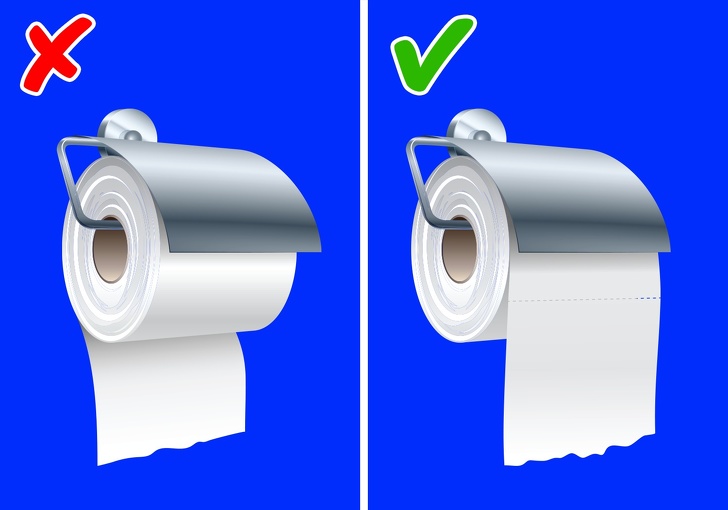
The question regarding the correct way to hang toilet paper is very old. But if we study this issue, we’ll understand that the right way to hang our toilet paper is with the end going over the top. Scientists from the University of Colorado explain that with this method you’ll only touch the toilet paper you’re personally using. If you hang toilet paper using the “under way,” then there’s a chance your hand will touch the wall when you reach for a few squares.
11. Hot bath

What can be better than a hot bath after a long day at work? Lots of people like to spend hours in there. But it’s not recommended to sit in a tub with hot water for more than 20 minutes because it increases the workload of the heart and it can make our skin age faster.
10. Coffee in the morning

Waking up early in the morning is stressful for our body especially because it’s accompanied by cortisol production. If you drink coffee right after waking up, the caffeine’s effect won’t be that strong because of the cortisol level in your blood. As time passes, your body will require more and more caffeine to wake up.
Scientists recommend that we drink coffee after 9:30 a.m. or 3 hours after waking up when the cortisol level drops.
9. Washing your hands
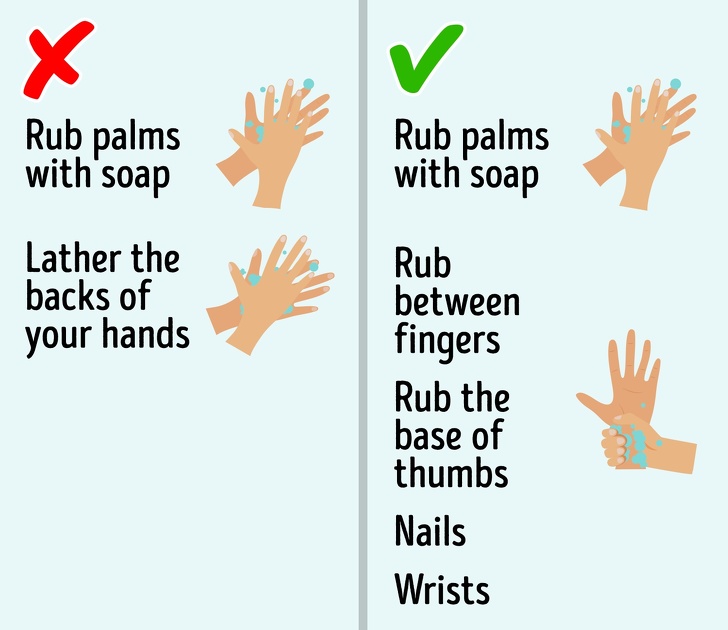
Many people fail to wash their hands correctly. Each part of the skin on the hands, including spots between the fingers, should be rubbed with soap. And the whole process should take no less than 20-30 seconds.
8. Drying hands with a dryer

Do you know which air is used to dry your hands in public restrooms? Yep, the same room’s air. Studies show that the amount of bacteria on your hands grows after drying with an air dryer. It’s safer to use paper towels.
7. Pouring juice into a glass without splashing it
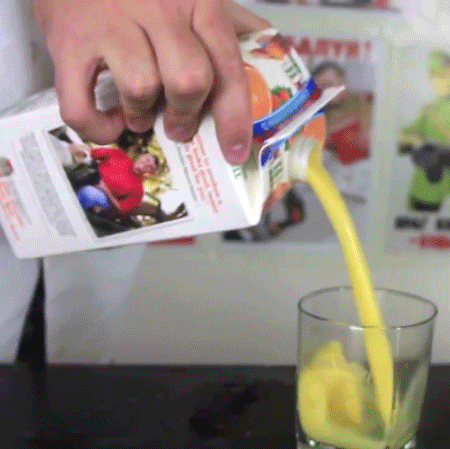
To pour juice from a carton into a glass without splashing your drink everywhere, the carton should actually be emptied with the pouring spout on the upper side of the top’s central fold.
6. Applying a band-aid to a cut on your finger
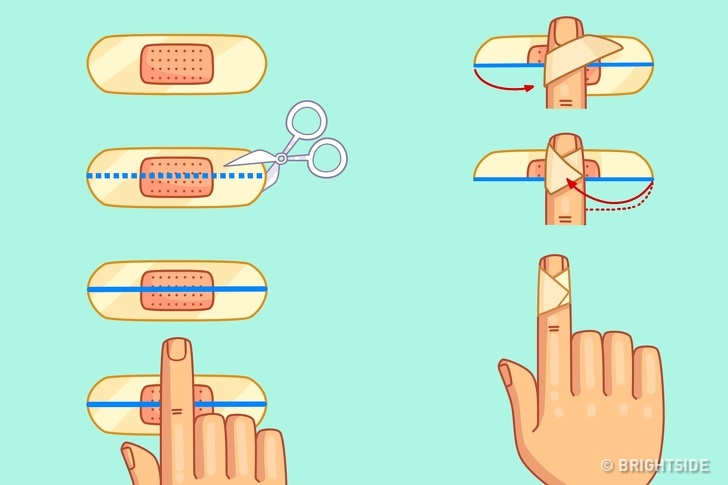
Cut the 2 sticky ends in half and stick to your finger in a crisscross pattern. Now you can do whatever you want without having to be too careful.
5. Drying the dishes

If you dry your dishes upside down, there’s a chance that a musty smell will appear. You can put all items on their sides or just wipe them with paper towels.
4. Excessive gas control
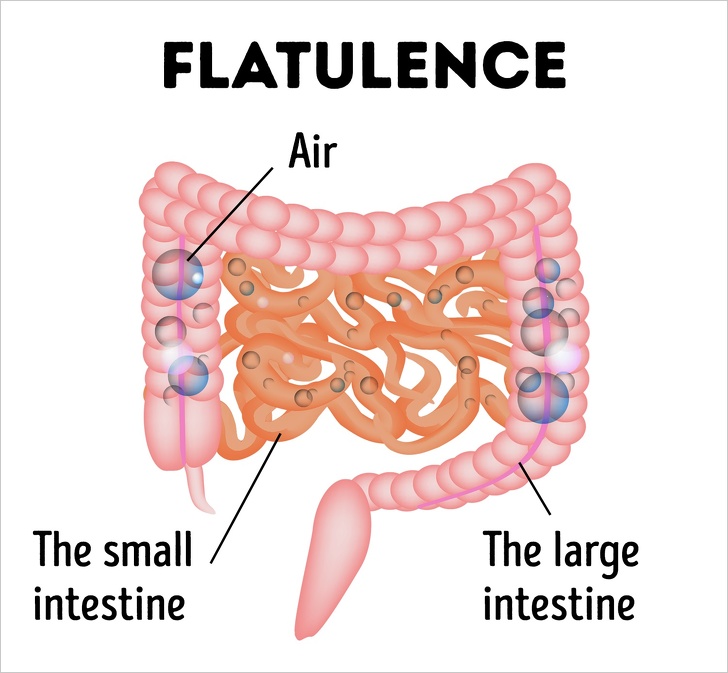
No, we shouldn’t have gas inside our guts for a long period of time. If we don’t let the gas out, it could cause hemorrhoids. We don’t encourage you to let it go in public places, but you can always find a quiet place to relieve your gas.
3. How to untie a plastic bag knot. Mission: Impossible.
To untie a knot, twist one of the handles until it becomes hard, then use it to push that handle through the knot.
2. Supermarket bags

So you don’t hurt your back split the weight evenly by holding bags in both hands, and don’t just use one big bag.
1. Breath
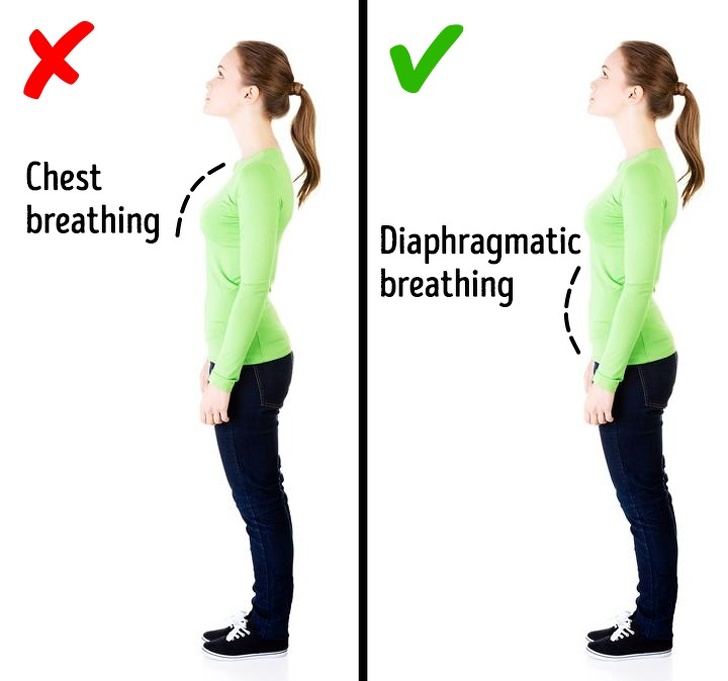
Watch a baby breathe to understand how we should breathe: they breathe with their stomach and diaphragm. This type of breathing helps enrich our body with oxygen and increase our energy level.
Diaphragmatic breathing relaxes your neck and shoulders, reduces tension in the chest and stomach, and the lymphatic system starts to better eliminate toxins. Besides, this breathing contributes to better gas exchange that massages our stomach, intestine, and liver.











